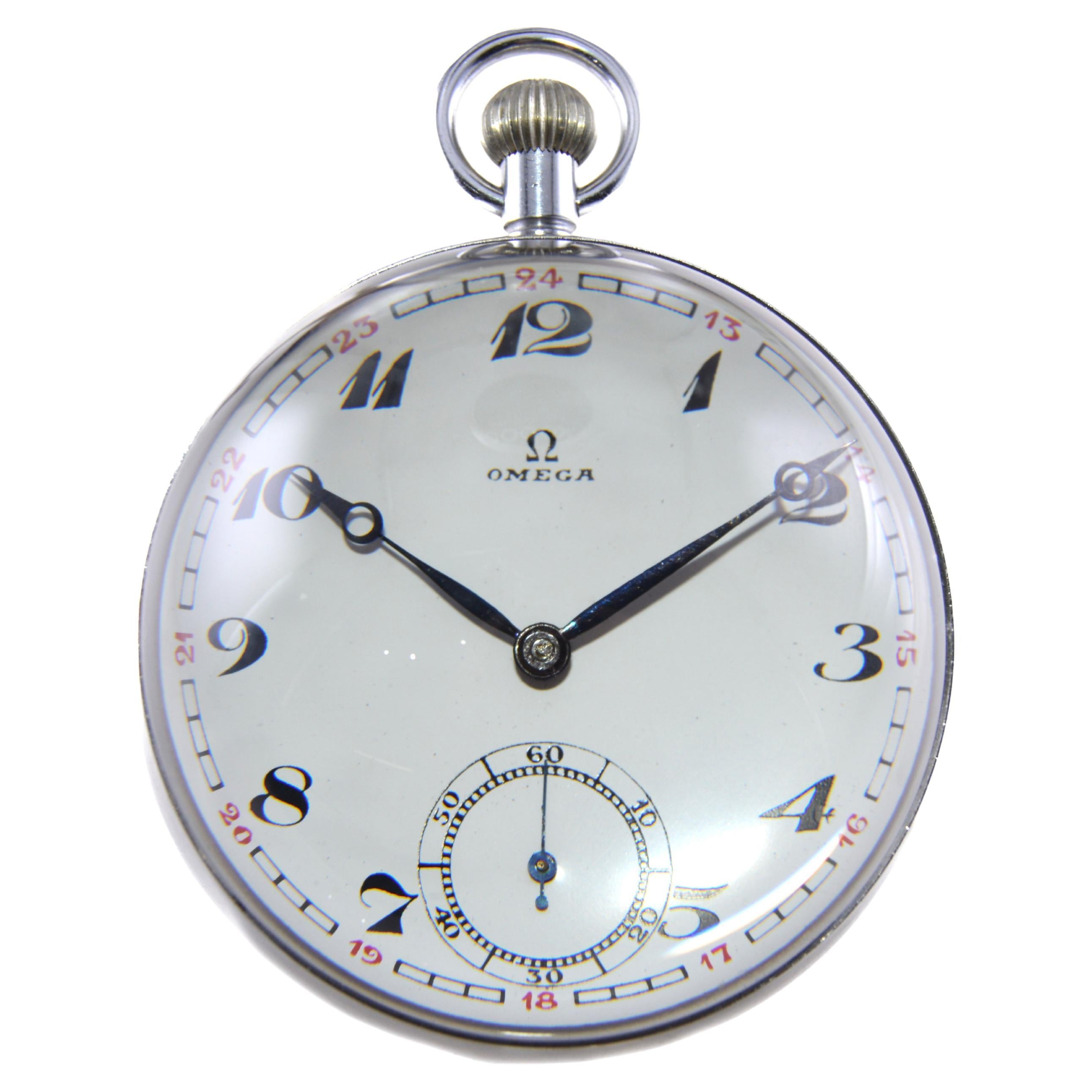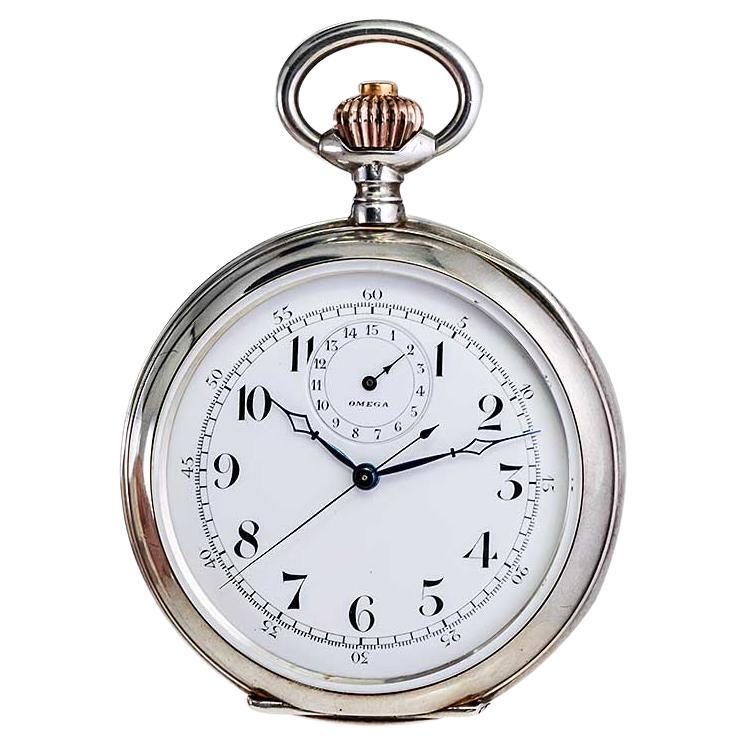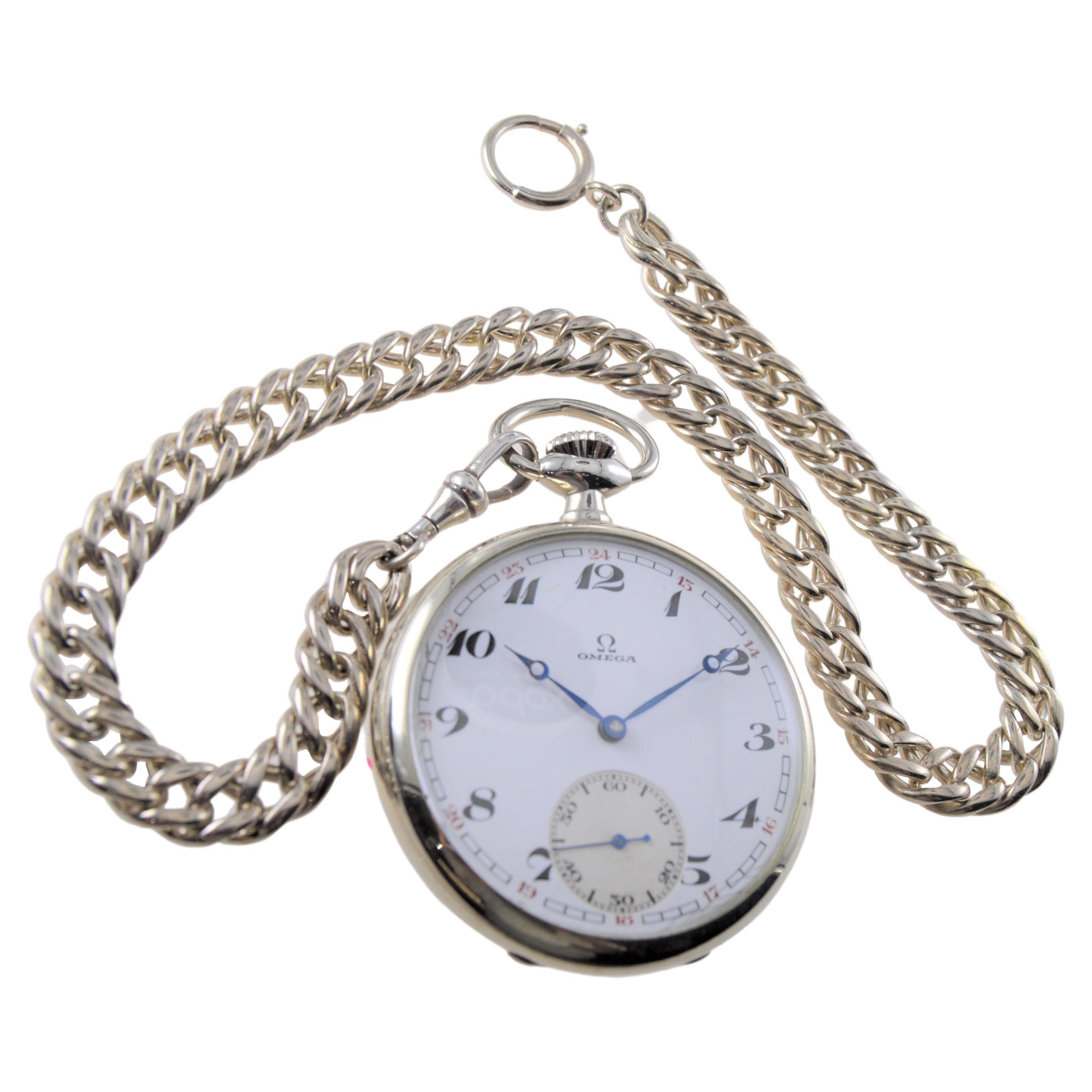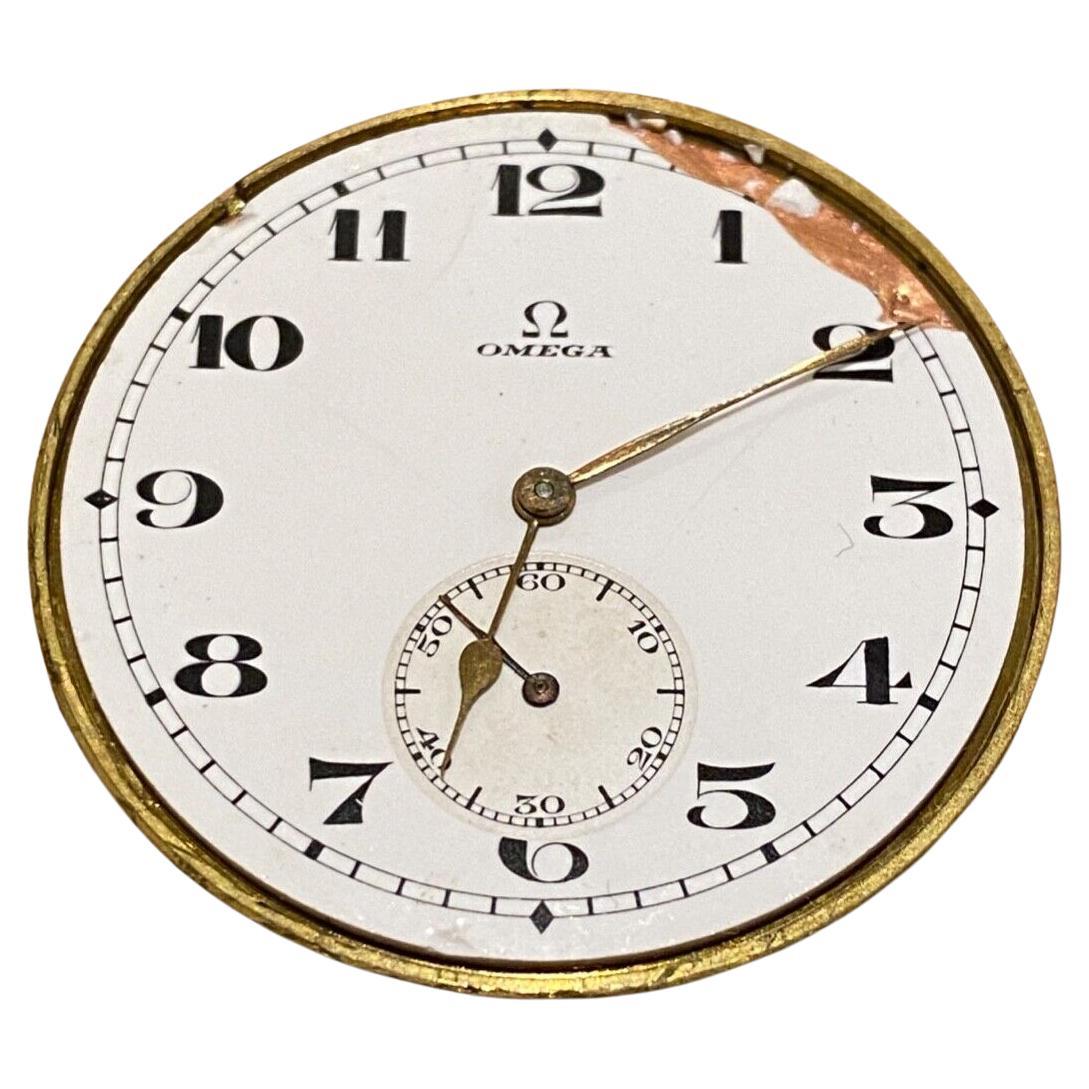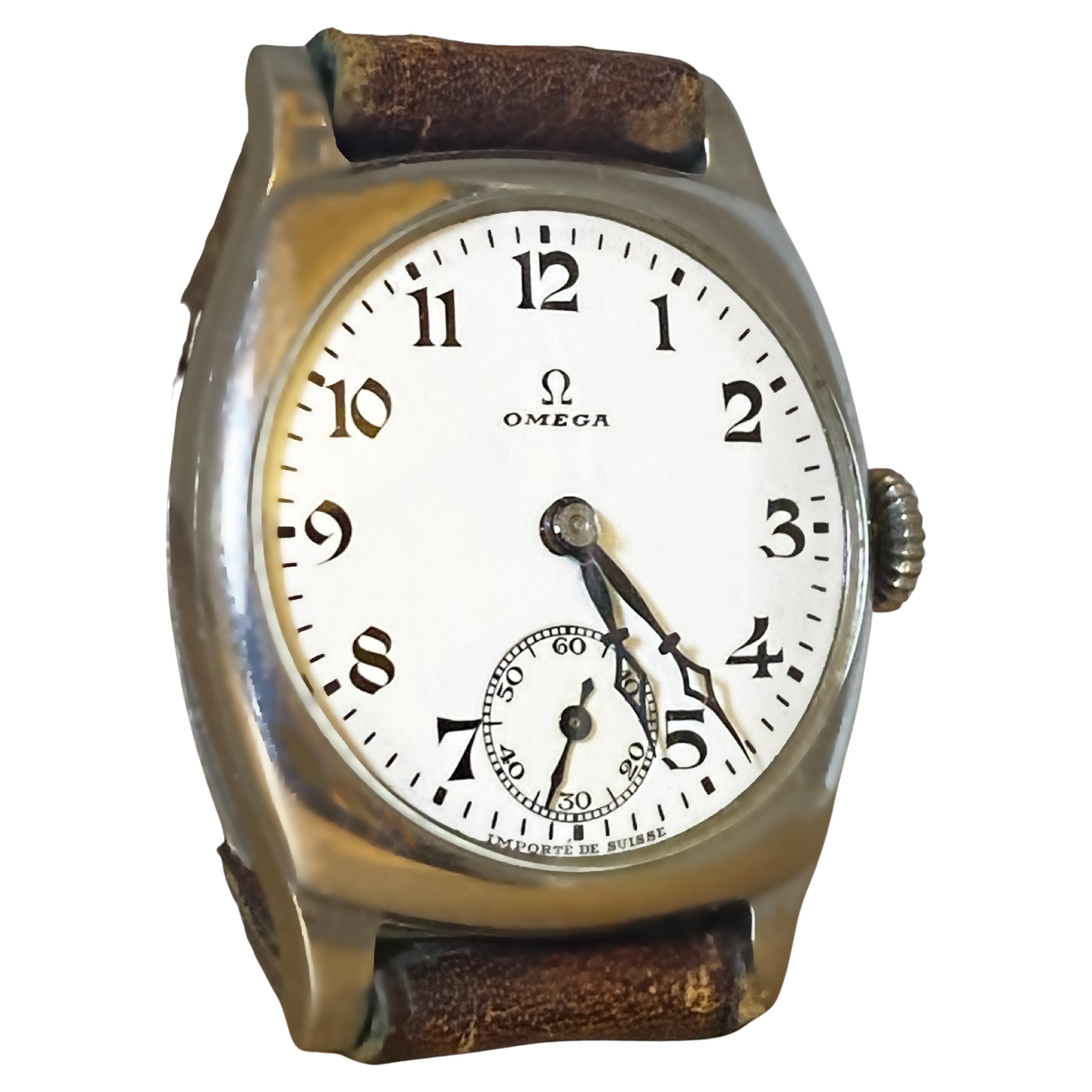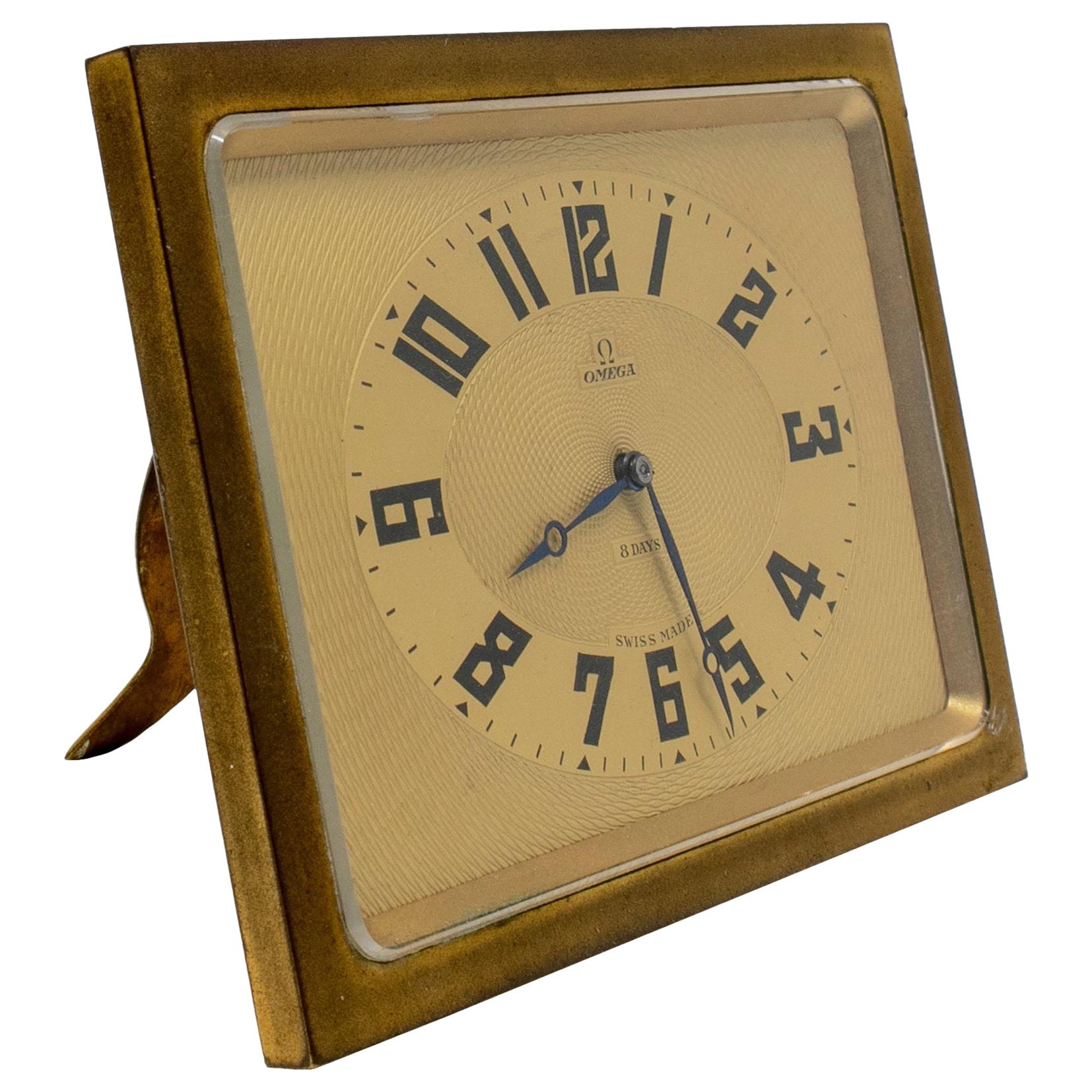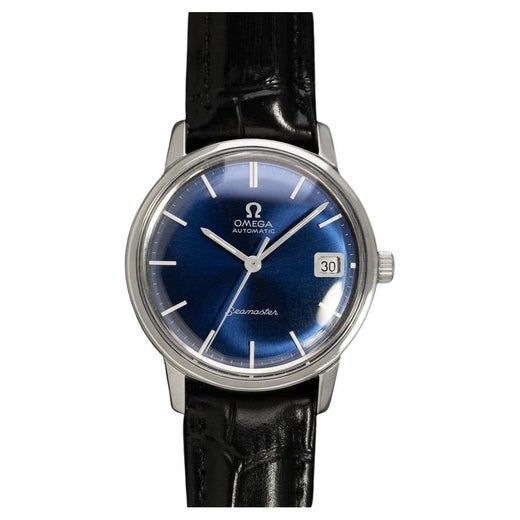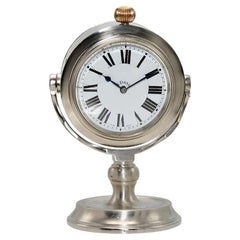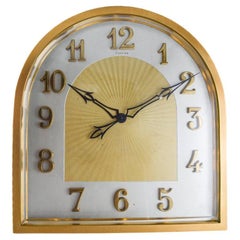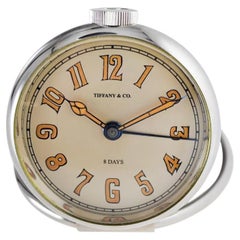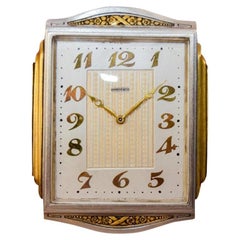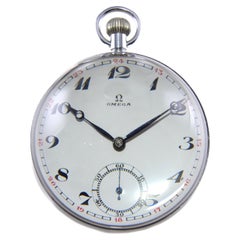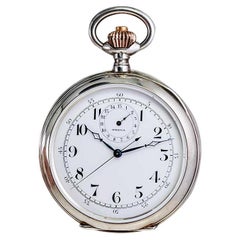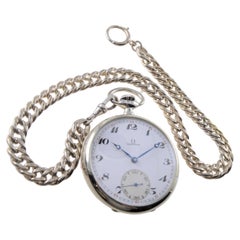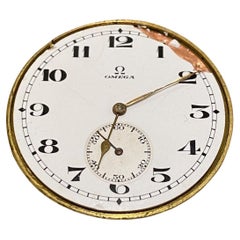Omega Art Deco Styled Ball Clock with Magnifier Lens
About the Item
- Creator:Omega (Clockmaker)
- Dimensions:Height: 3 in (7.62 cm)Width: 3 in (7.62 cm)Depth: 3 in (7.62 cm)
- Style:Art Deco (In the Style Of)
- Materials and Techniques:
- Place of Origin:
- Period:
- Date of Manufacture:1930's
- Condition:Wear consistent with age and use. It is worth noting that this clock only had a 12-month warranty when it was new. However, we are so confident of our workmanship and team that we offer an 18-month warranty on all our clocks, even those over 100 years old.
- Seller Location:Long Beach, CA
- Reference Number:Seller: AC ??1stDibs: LU5895236718082
Omega
It’s a celebrated part of Omega lore that the brand’s Speedmaster Professional Chronograph was the first watch to make a lunar landing. But the universal love for vintage Omega watches isn't confined to astronomers, and there’s more to the company’s heritage than the story of the Moonwatch.
The house’s origins date to 1848, when Swiss watchmaker Louis Brandt first set up shop. His sons Louis-Paul and César took over after his death, and in 1894, the pair developed an intriguing new movement.
Not only was it highly accurate, but every part was replaceable, making it easy for any professional to service. The Brandts called their movement the Omega, and as its popularity spread, they changed their company’s name to that of its flagship product.
In 1917, the British Royal Flying Corps designated Omega as an official supplier, and during World War II it became the principal watch supplier for the British forces and their allies. These commissions further strengthened Omega’s commitment to ensuring its products’ reliability under extreme conditions. In 1948, it launched the versatile Seamaster. Developed as a dive watch, the Seamaster proved its durability at high altitudes and freezing temperatures, as well. (Here is the 1stDibs guide to spotting a fake Omega Seamaster.)
Thanks in part to its rugged reputation and Omega’s links to the British military, it became James Bond’s watch of choice in 1995, appearing in GoldenEye and every succeeding Bond movie; it returned in 2021’s No Time to Die. Nevertheless, the most famous Omega by far is the Speedmaster, introduced in 1957. The first chronograph to display its tachymeter scale on the bezel instead of the dial for easier readability, it was quickly adopted by engineers and scientists.
Worn by Buzz Aldrin during the 1969 Apollo 11 lunar mission, it’s the only watch certified by NASA for extravehicular activity (space walks) — and, as far as we know, the only one approved by the Russian space agency, too.
Watch aficionados and aficionadas alike can find vintage Omega watches today on 1stDibs.
- ShippingRetrieving quote...Shipping from: Long Beach, CA
- Return Policy
More From This Seller
View AllVintage 1930s Swiss Art Deco Table Clocks and Desk Clocks
Brass, Other
Vintage 1930s Swiss Art Deco Table Clocks and Desk Clocks
Brass
Vintage 1950s Swiss Art Deco Table Clocks and Desk Clocks
Nickel
Vintage 1930s Swiss Table Clocks and Desk Clocks
Brass, Nickel
Antique 1850s Swiss Table Clocks and Desk Clocks
Brass
Vintage 1930s Swiss Art Deco Table Clocks and Desk Clocks
Brass
You May Also Like
Vintage 1930s Swiss Art Deco Desk Accessories
Vintage 1910s Swiss Art Deco Pocket Watches
Vintage 1920s Swiss Art Deco Wrist Watches
Vintage 1910s Swiss Pocket Watches
Brass
Vintage 1930s Swiss Art Deco Wrist Watches
Stainless Steel
Mid-20th Century European Table Clocks and Desk Clocks
Bronze
